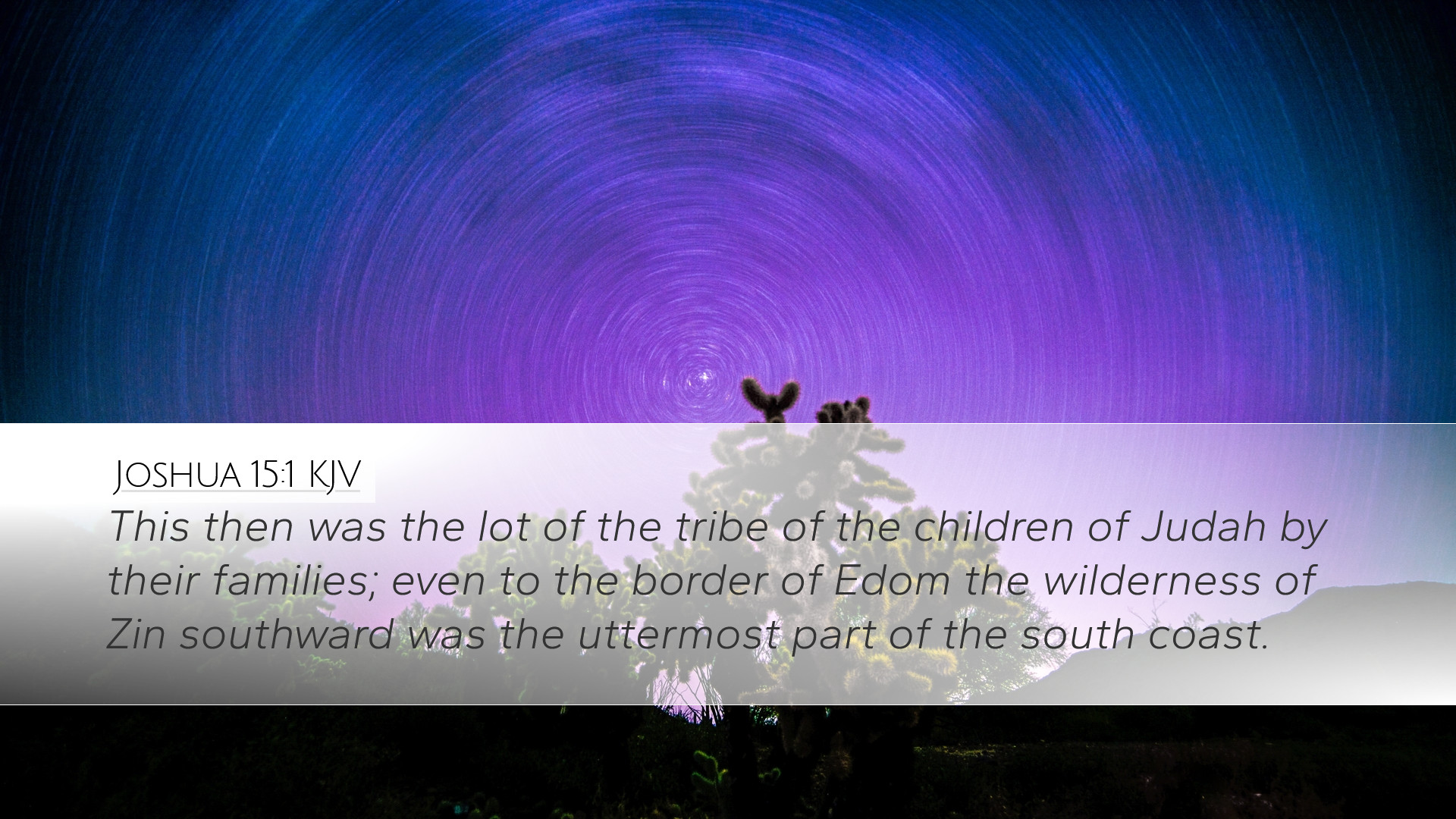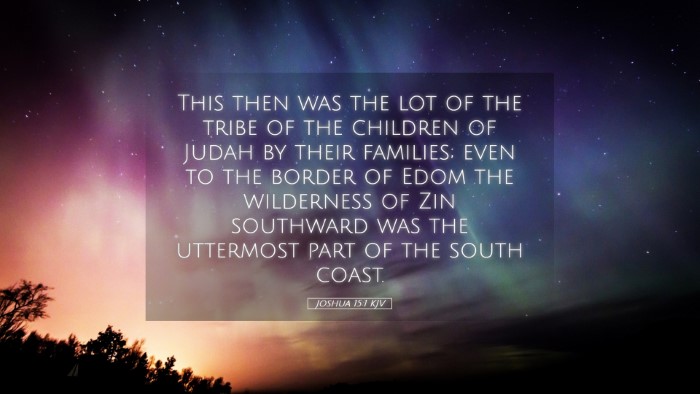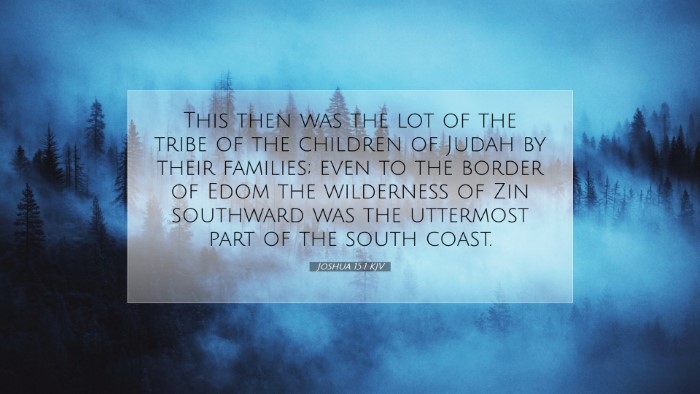Commentary on Joshua 15:1
Verse: "This then was the lot of the tribe of the children of Judah by their families; even to the border of Edom southward was the wilderness of Zin, which is southward." (Joshua 15:1)
This verse marks a significant moment in the Biblical narrative, as it delineates the territorial inheritance assigned to the tribe of Judah. Such passages often serve both historical and theological purposes, providing a genealogical and geographical context within the redemptive history of Israel.
Context and Significance
The verse introduces the allotment of land for the tribe of Judah, the largest of the tribes of Israel. This is part of the larger narrative of the conquest and settlement of Canaan under Joshua's leadership. Understanding the implications of this allotment involves several layers of biblical theology and history.
Historical Background
The inheritance of land was a crucial element in the identity and sustenance of the Israelite tribes. As noted by Matthew Henry, the "lot of Judah" signifies not merely economic autonomy but also spiritual blessings associated with God's promises. Judah, being the lineage of King David and ultimately Jesus Christ, holds profound theological importance.
Families and Borders of Judah
- Families: The text emphasizes "by their families," highlighting the tribal structure of Israel's society. This familial division is significant, as it reinforces relationships and responsibilities within the community.
- Geographical Context: The mention of Edom and the wilderness of Zin situates Judah geographically. As Albert Barnes notes, the wilderness served as a natural boundary, while the southern border indicated both a physical and spiritual stance against surrounding nations.
Theological Reflections
This verse is not merely a historical account. It carries symbolic meaning regarding God's covenant with His people. Adam Clarke points out that the area granted to Judah serves as a reminder of God's faithfulness to His promises. The wild and untamed landscapes symbolize both the challenges the Israelites faced and the opportunities for spiritual growth.
Judah as a Symbol of Leadership
Judah's strength as a tribe foreshadows themes of leadership and kingship within Israel. The tribe’s allotment lays the groundwork for future kings, illustrating God's grand design in redemptive history. The rise of David, a son of Judah, underscores the significance of this allocation.
Messianic Implications
Readers are often drawn to the messianic implications of Judah's territory. The prophetic lineage from Judah leading to Christ is a pivotal theme found throughout scripture, culminating in the New Testament. This connection invites pastors and theologians to explore the continuity of God’s plan for redemption from the Old Testament to the New Testament.
Applications for Today
The exploration of Joshua 15:1 provides critical reflections for the contemporary church. Understanding inheritance goes beyond physical land and can be applied to the spiritual inheritance believers have through Christ.
- Faithfulness in Assignments: Just as Judah received a specific territory, believers today are called to recognize their unique roles in their communities and churches.
- Spiritual Warfare: The wilderness context represents the spiritual battles that all Christians face. It serves as a reminder to depend on God's guidance through struggles.
- Unity in Diversity: The tribal divisions illustrate the diversity within the body of Christ. Each member has a role to fulfill, reflecting the fullness of God’s kingdom.
Conclusion
Joshua 15:1 is rich with implications for understanding God’s plans for His people both in ancient Israel and today. The verse invites theological reflection and community application, challenging believers to recognize their spiritual inheritance and calling. Through thoughtful engagement with the text, we see that every detail aligns with God’s overarching narrative of redemption and hope.


